Light Novel Where Mc Gets Told to Do Something and Has to Do It Over and Over Again Until He Succeds
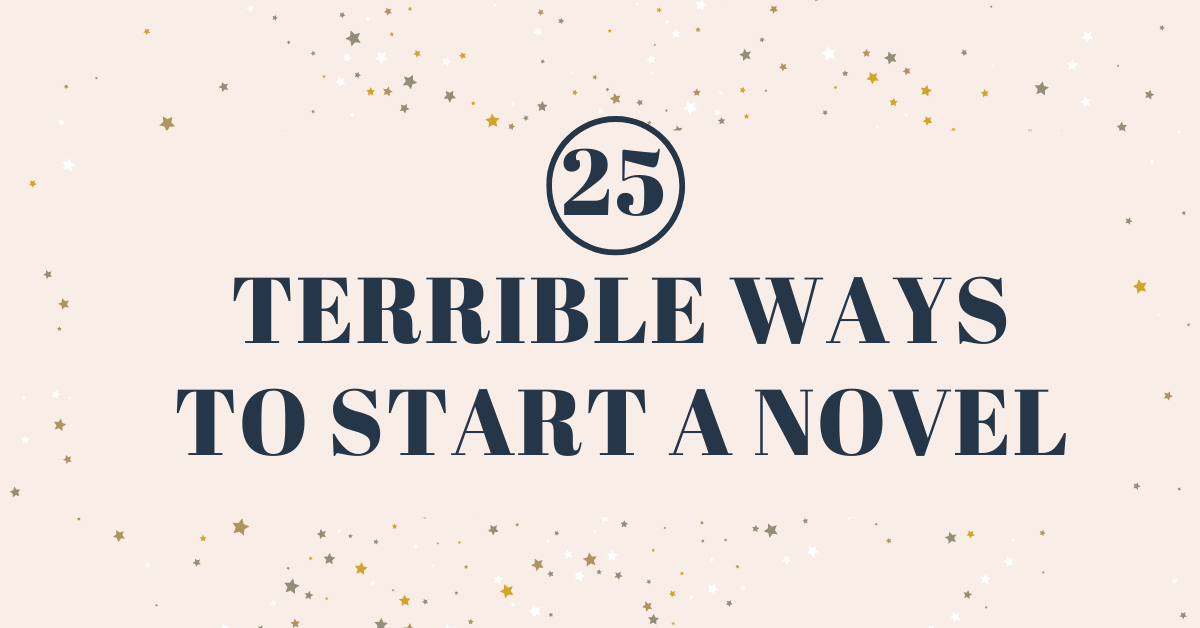
Wondering how to outset a novel?
Well, avoid these 25 mistakes and you'll be well on your way.
This list was made in honor of NaNoWriMo, which started yesterday, and I mail service it every bit a tribute to all those souls trying to knock out 50,000 words in a mere xxx days. Good luck to all of you.
And if you're less of a negative Nancy and more of a sunny-side upward person, read my mail on the positive means you should first a novel.
12 Steps to Writing a Bestseller in 6 Months
In that post, I talk about characters, plot, point of view, theme, conflict, and climaxes — everything a author needs to finish their novel.
But if you want more than luck, read these tips for how to start a novel and avert some frequent pitfalls!
1. Starting ten pages earlier the showtime
This is the almost common error I see in books I edit. The author is settling into the story, giving data and backstory, rather than starting the actual story! Notice the real beginning of your story — it's where the grapheme encounters a problem or disharmonize — and make sure that it is your first paragraph (or at least your first page).
2. Not introducing your main character
It'south annoying to read five pages and detect that the grapheme I was investing in turns out to be irrelevant. I want the principal character right abroad, and I desire to know what'southward troubling them. Don't try to be coy in your novel openings.
You tin can exist coy in the sleeping accommodation, merely not in the offset of your novel.
iii. Introducing too many characters

Nobody likes coming together 20 people at the same time, in real life or in fiction. So practise your reader a favor and stick with a few important characters in the commencement chapter. Meaning two, or 3, or iv.
I read a lot of novel drafts that introduce eight or more than characters in the first chapter, and that's just confusing.
Your readers are smart, and when you lot make them feel impaired because they can't remember who Tommy Garanger is, and why he has a bedsheet on his head, they won't desire to keep reading.
4. Not creating disharmonize
You should create conflict on the kickoff page.
If I can't latch onto some danger, mystery, or conflict, I don't want to go on reading. There are millions of books in the globe for me to read; give me a reason every bit shortly as possible to keep reading yours.
5. Starting with summary
This is probably the second near common mistake I see. Don't start with summary, starting time with a scene.
I don't want to hear information about your scenario, I want to smell information technology, gustation it, and come across information technology firsthand.
And make sure that you're starting in the middle of a scene, not at the boring beginning. First in the middle and let the reader figure it out.
half-dozen. Burying the Reader in Info
A mystery is expert. You don't need to dump everything you know about this world into the lap of the reader right away. Give it some time. If you craft it right, they'll go along reading to discover out all that stuff.
7. Making the reader feel dumb

E'er trust your reader. Believe that they are smart and they will get it if yous don't spell it out. And so don't spell information technology out. Don't over explain.
8. Irresolute Betoken of View
Don't switch from 3rd to 1st, or from 1st to 3rd.
Get your POV down correct away. And don't tease the reader with an alternative point of view.
If there's a first person POV speaker, I want to hear them as shortly as possible. Preferably the first sentence.
nine. Starting in Present Tense
Don't even. Don't even try it. Information technology's such the marking of a beginning writer. Spare us all and outset in past tense. That way you won't be going through your manuscript later irresolute every unmarried verb tense (it's tiring; trust me, I've done it).

10. Starting with dialogue
I don't care who is talking if I don't know them. Give me a reason to care nigh those words by showing me a character in a particular scene.
11. Starting with description

Describing a mountain or a prairie full of flowers or anything in the natural world wins the award for the most boring fashion to showtime a story. Nothing could be less interesting to your reader. If they wanted to expect at a squeamish scene, they would Google some pictures.
Nobody e'er reads a book based on neat descriptions. Nobody ever recommends another book to somebody by saying, "Dude, this book had amazing description!"
12. Starting with a dream sequence

No. No. No. Admittedly not. I want something that is real. I don't want a cheap flim-flam. Give me reality and make that reality gripping. Anybody can make a dream fascinating, simply at some point your character has to wake up, and then your reader will feel cheated. Rule of thumb: never crook your reader.
Also, I'll go ahead and say you should probably avoid dream sequences in the balance of your novel, too. Just avoid them everywhere. There are much better ways to show your character's subconscious.
13. Killing the start grapheme
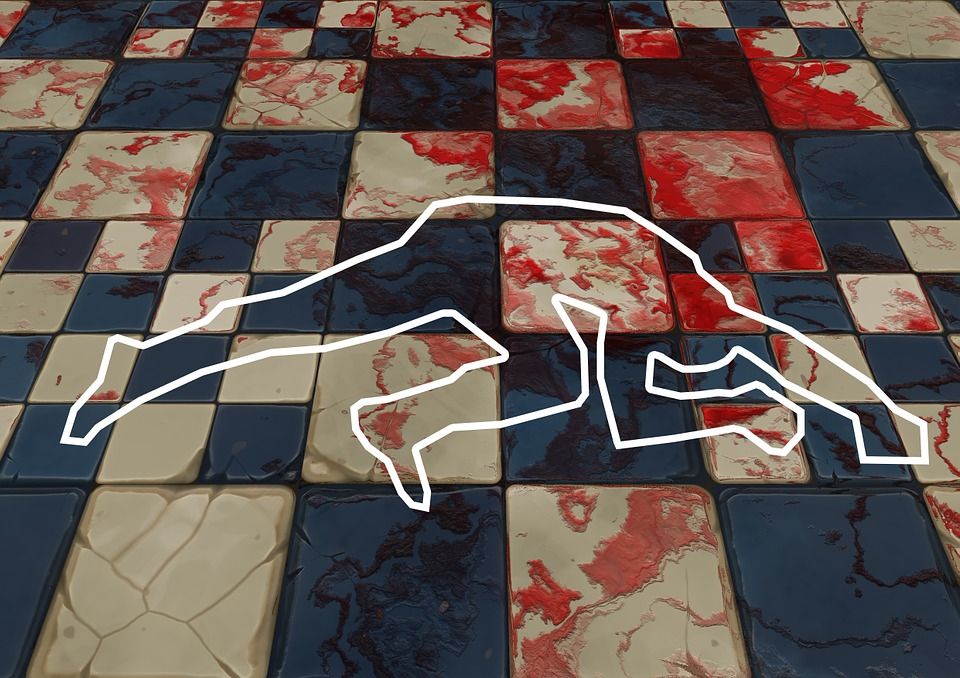
Unless this is a slasher flick or a criminal offence novel, I don't desire to meet anyone that I volition soon have to say goodbye to. I want a character I can grow with, that I can learn to know and love.
It's a kind of trick to prove me someone that y'all're going to impale off, and it gives me doubts about entering a world controlled past such a capricious god.
fourteen. Globe building

I really intendance about the characters in this new world, so don't simply give me data nigh the style the world works. Show a specific character encountering a difficulty in that globe, and I'll effigy out how the world works by seeing how that graphic symbol struggles.
xv. Fancy language
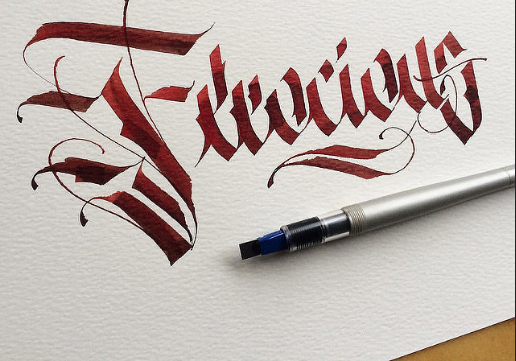
Please don't try too difficult to sound pretty. I desire plainly language that creates drama and interesting characters. I don't want to come across your attempt to expect smart.
Considering that'south what fancy language is about, isn't information technology? You making sure that everyone knows you're smart. Guess what? Anybody will think yous're smart if you tin can only tell an astonishing story. So concentrate on the story. True genius is knowing characters and knowing plot and knowing what to say in each sentence.
16. Writing a prologue
Prologues suck. Considering past definition, they come up before the story, rather than being the actual story. So skip them and go correct to the story. You tin ever have a flashback and include the prologue information later on.
17. Getting into Backstory
I don't intendance most what happened 10 years ago or 300 years ago. I intendance about this present moment. With a detail graphic symbol encountering a particular problem. Once yous have me interested in that, then you can go dorsum and show how the past is relevant to this particular problem.
18. Description of a character
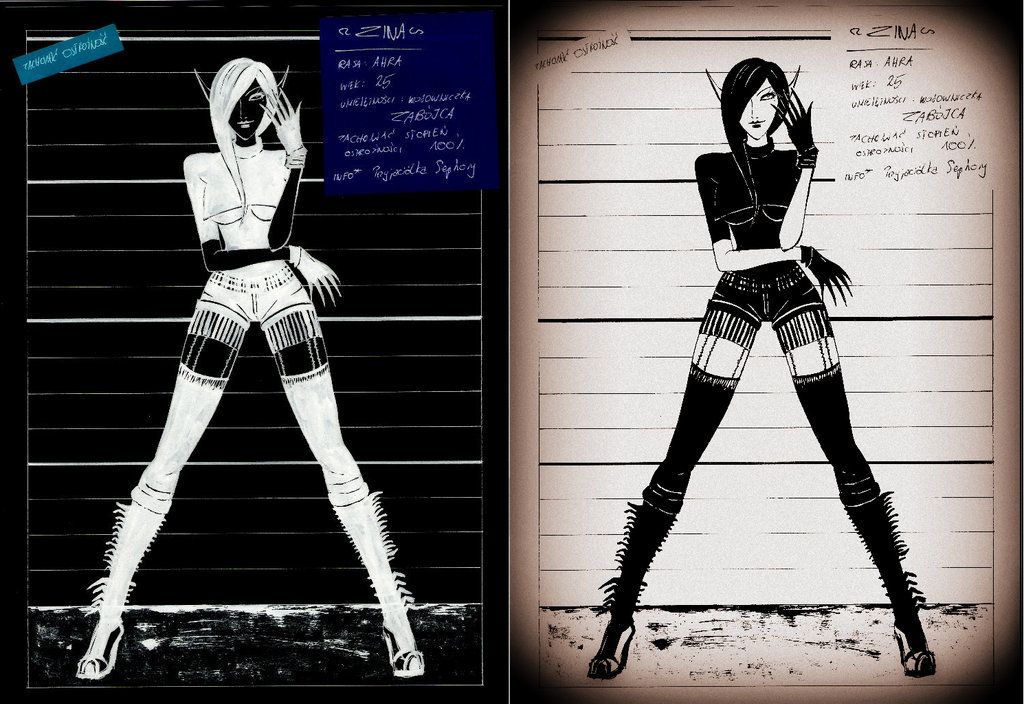
This is going to exist boring 90% of the fourth dimension. Why don't yous write a description of the grapheme, impress it out, post it to your cork lath, and then check it when you need to remind yourself what your character looks like? Because really, a description is for you, non the reader.
Maybe once you lot're deeper into the book, you tin dish out a few clues that clarify the concrete appearance of your graphic symbol.
19. Starting with trivia
What information are you offering at the beginning of your story? Is information technology trivial? Could it count equally mere trivia in the world you're creating? Because y'all want to offering important information at the beginning. Maybe not the most of import information, simply you don't want to tease the reader. Give them something hefty correct at the kickoff.
20. A deadening chapter ending

The cease of your first chapter is the springboard from which the reader will jump into the rest of your novel. Don't get out with a whimper. Show them something to make them go on reading.
The end of your first chapter is besides the start natural place where your reader tin finish reading. Information technology'south a built-in stopping point. And if they put your book down, volition they choice it upward again? Compel them to keep reading.
21. Breaking the rules of your genre
If yous're writing a romance novel, don't offset with a sports game. If yous're writing a sci-fi novel, don't start with an in-depth graphic symbol analysis. If yous're writing Christian novel, don't commencement with foul language. If you're writing literary fiction, don't start with a cliché.
Any you lot're writing, know that genre well, and know what is immune and what isn't immune.
22. Using loads of cliches
The outset of your book needs to be original. You accomplish this by fugitive two types of cliches: the sentence cliches ("avoid information technology like the plague") and by avoiding cliches of plot and grapheme (the smart merely ugly sister).
23. Waking up to an alert clock

This is unexciting. Now if they woke up to a gunshot, or an alien invasion, or to a missing wife, those would all be heady ways to wake up. Choose the unusual over the mundane.
24. Assertive confusion is the same thing every bit subtlety
I think subtlety is a wonderful tool to have in the author's toolbox. But if the beginning of your book is but confusing the reader, you're not being subtle.
Subtlety relies upon the reader understanding … then make sure everything that is subtle is also clear. If you accept to err between giving the reader information outright and giving information technology elliptically, cull the straightforward road. People would rather understand the story than be toyed with.
25. Starting with humdrum sentences
Does this contradict #15, about using fancy language? No. I'1000 not asking you to utilise fancy language, I'm asking y'all to sound dissimilar than other writers. How exercise yous exercise that?
By getting some attitude in your prose. By making your writing audio like it's from a place, rather than from everywhere and nowhere. By getting voice. Agents and publishers say that "vocalization" is the well-nigh important thing they expect for in a writer, and so brand certain the outset of your novel displays some of the language that makes your graphic symbol into a true graphic symbol.
How Practise I Start a Novel?
Hither is a listing of 20 excellent first paragraph strategies and how y'all can use them.
For the all-time guide to novel writing on the cyberspace, get to "12 Steps to Writing Your Bestseller."
FAQ:
If I avoid all these mistakes, will my book be practiced?
Non necessarily, merely you'll have a much improve adventure. Since these are the most common mistakes when beginning a novel, you'll have sidestepped the easiest errors and hopefully your book will work better because of information technology.
Maybe hire an editor once you've finished and they tin help yous avoid other errors.
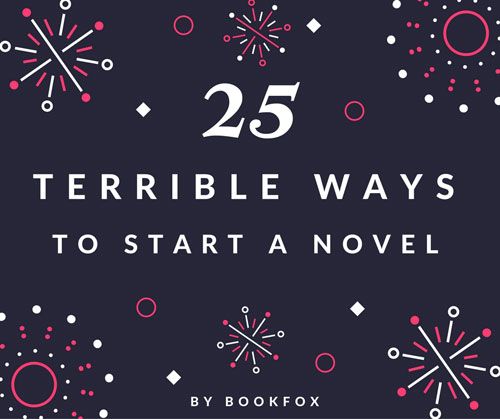
pressleyanots1962.blogspot.com
Source: https://thejohnfox.com/2016/11/how-to-start-a-novel/
0 Response to "Light Novel Where Mc Gets Told to Do Something and Has to Do It Over and Over Again Until He Succeds"
Post a Comment